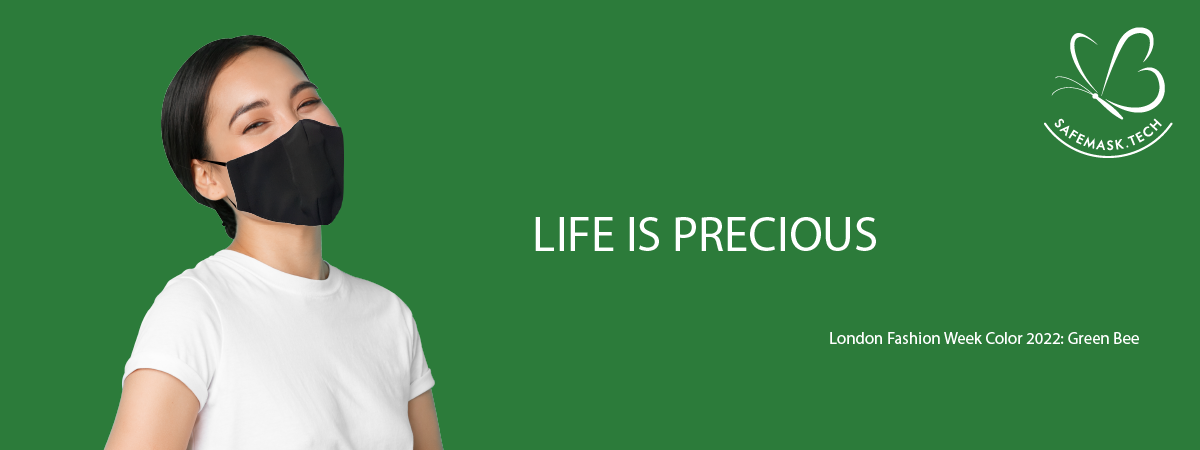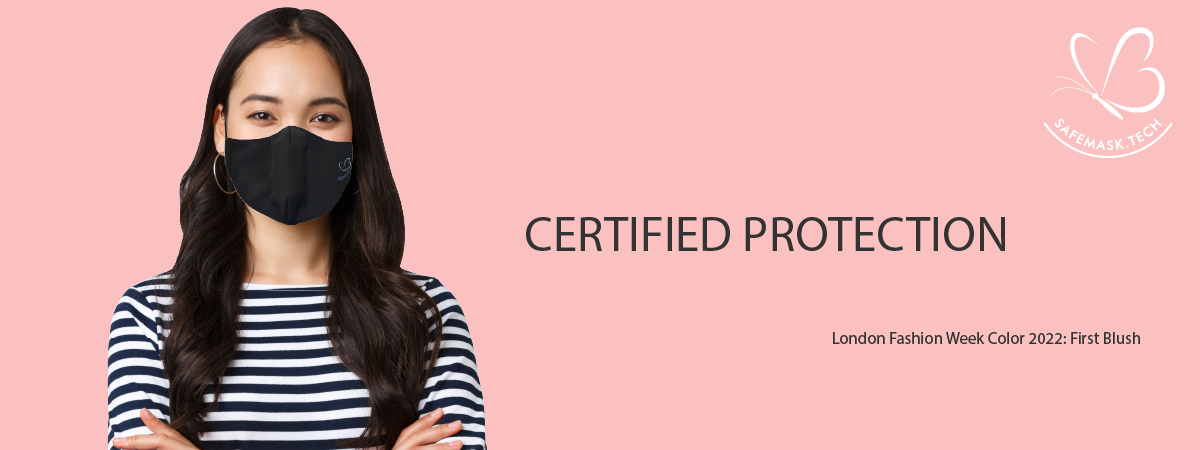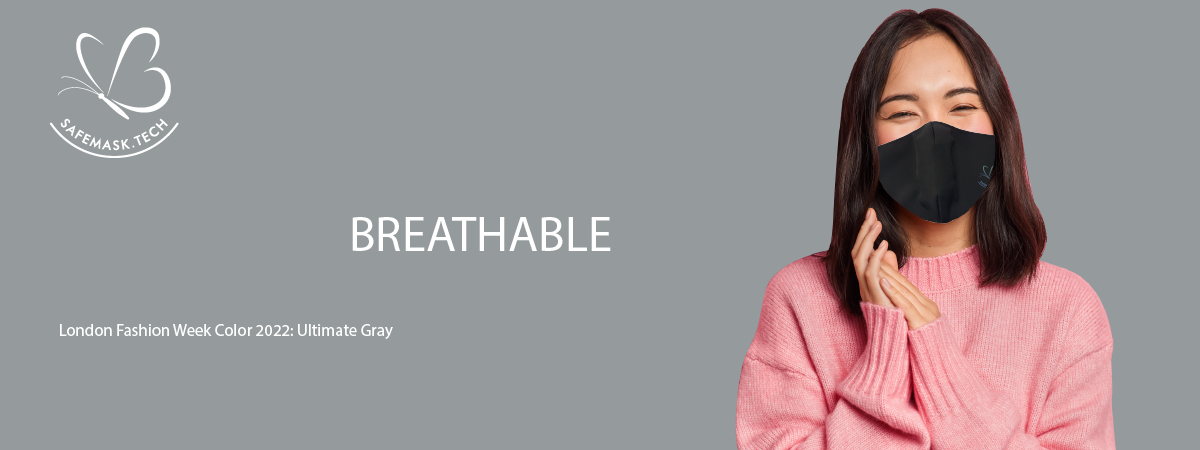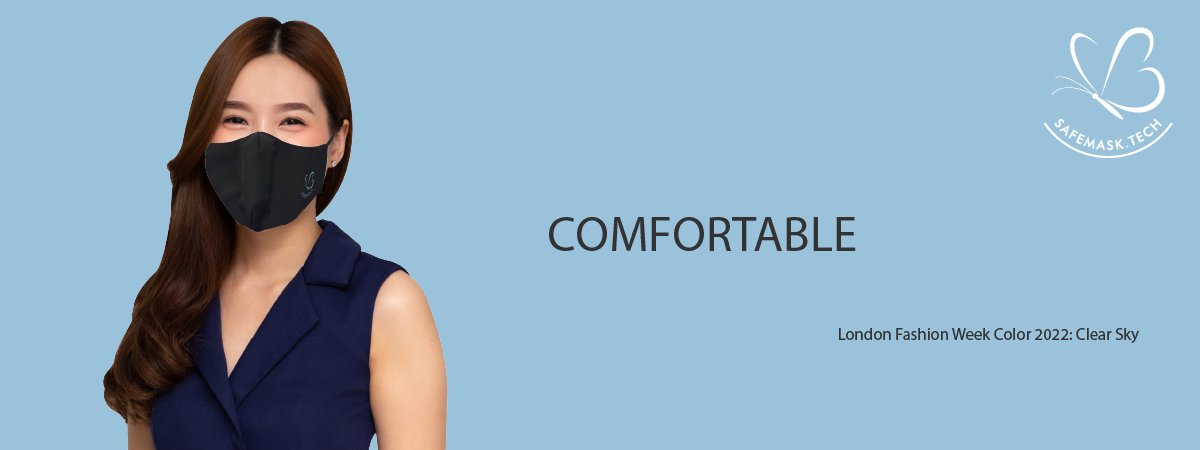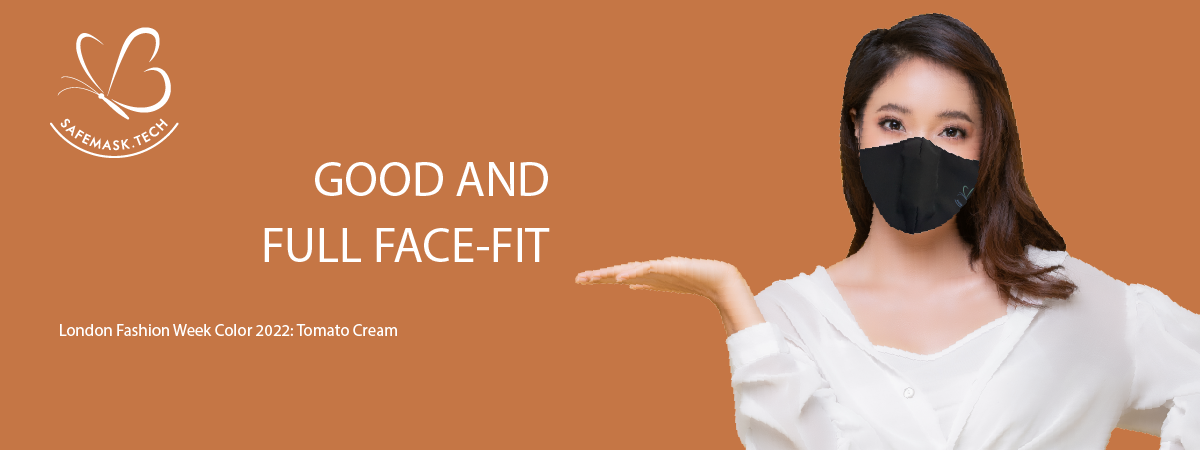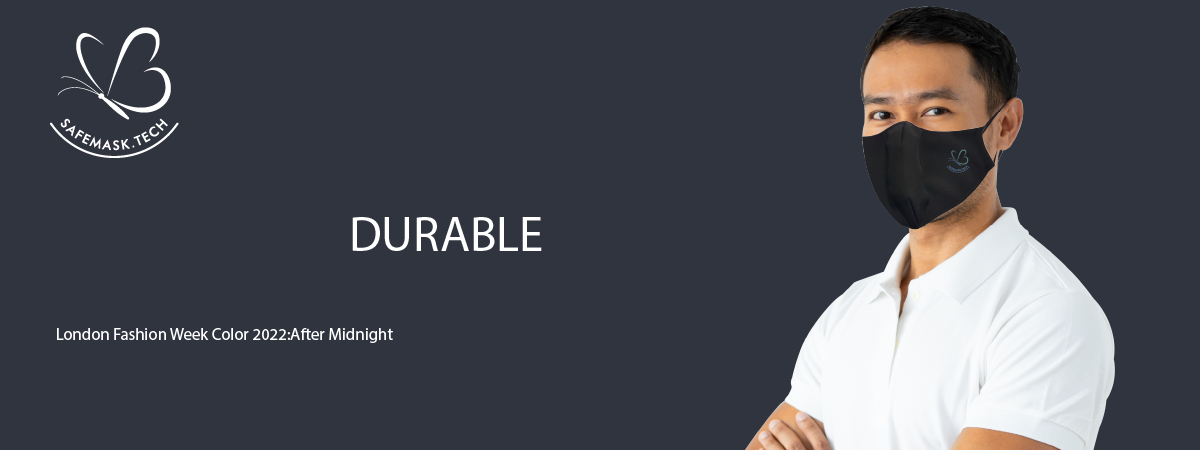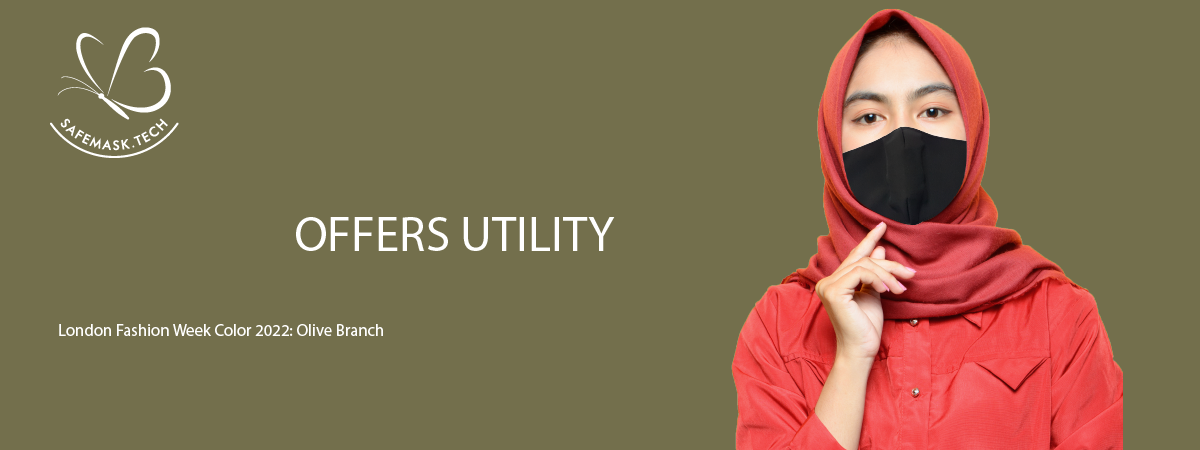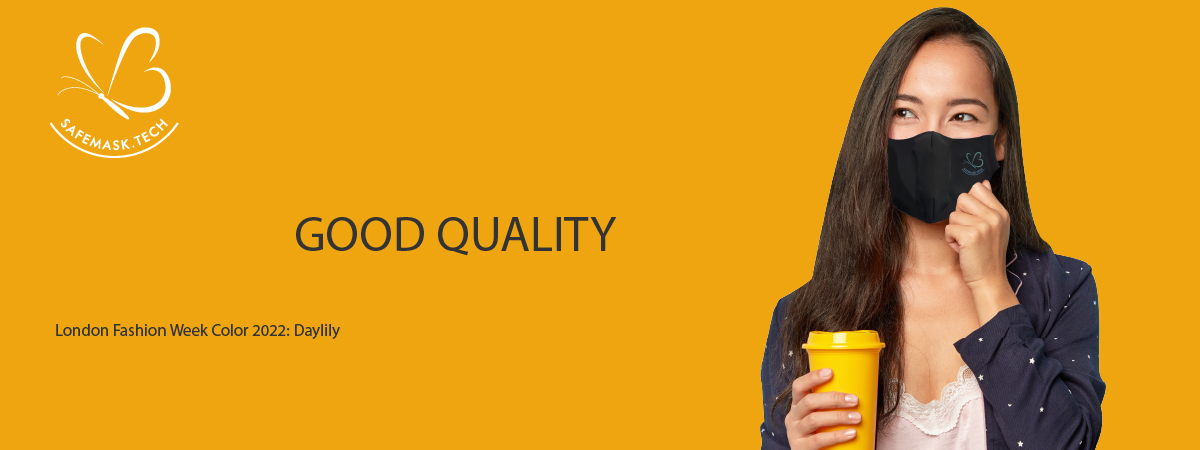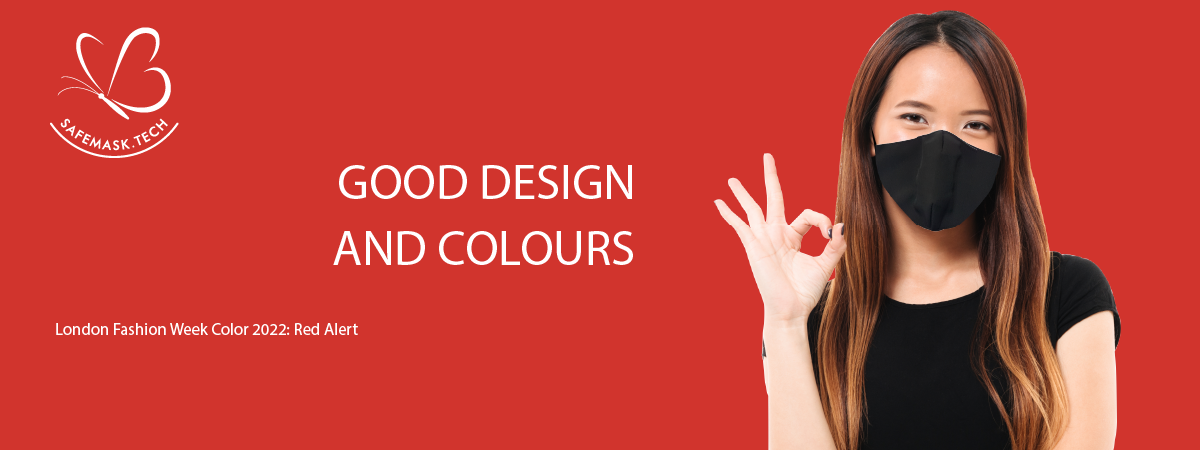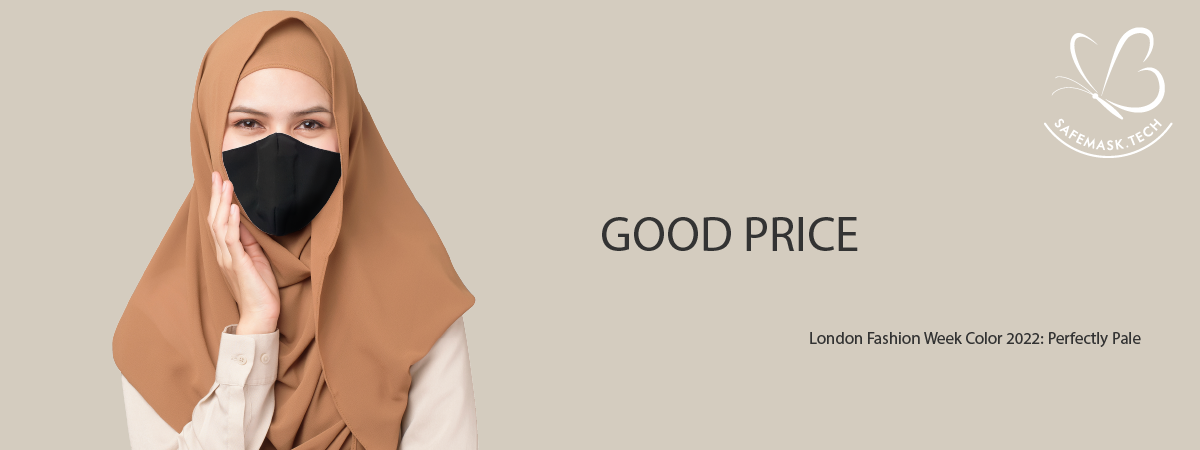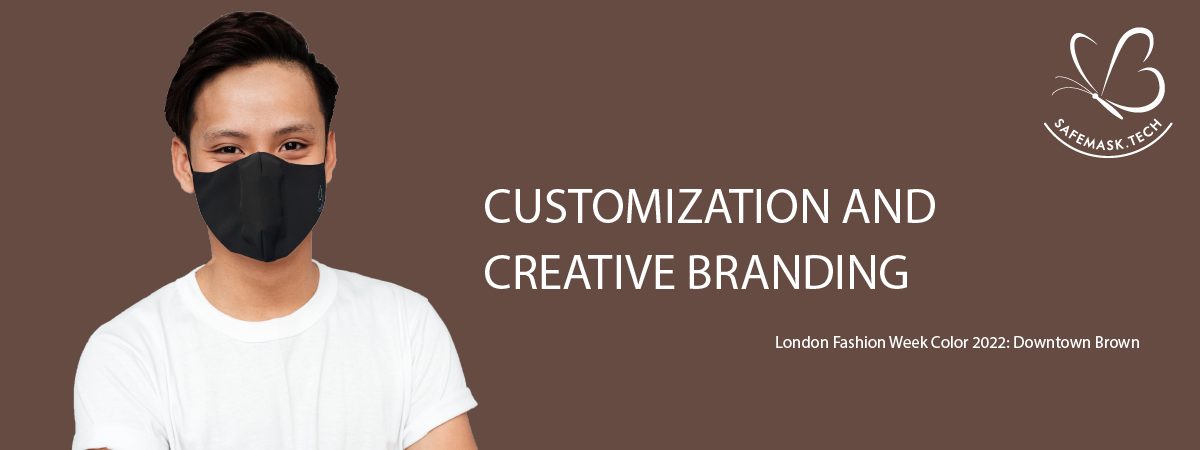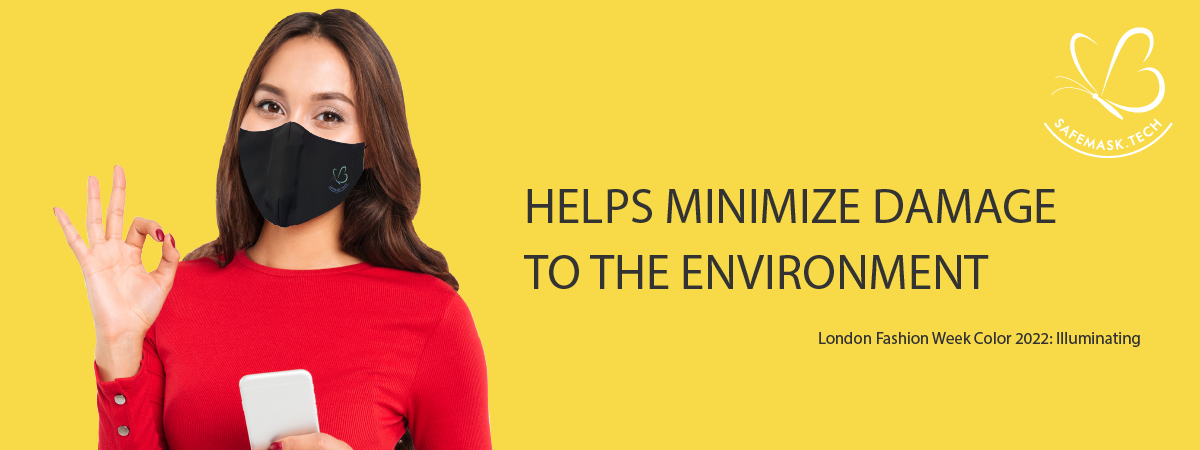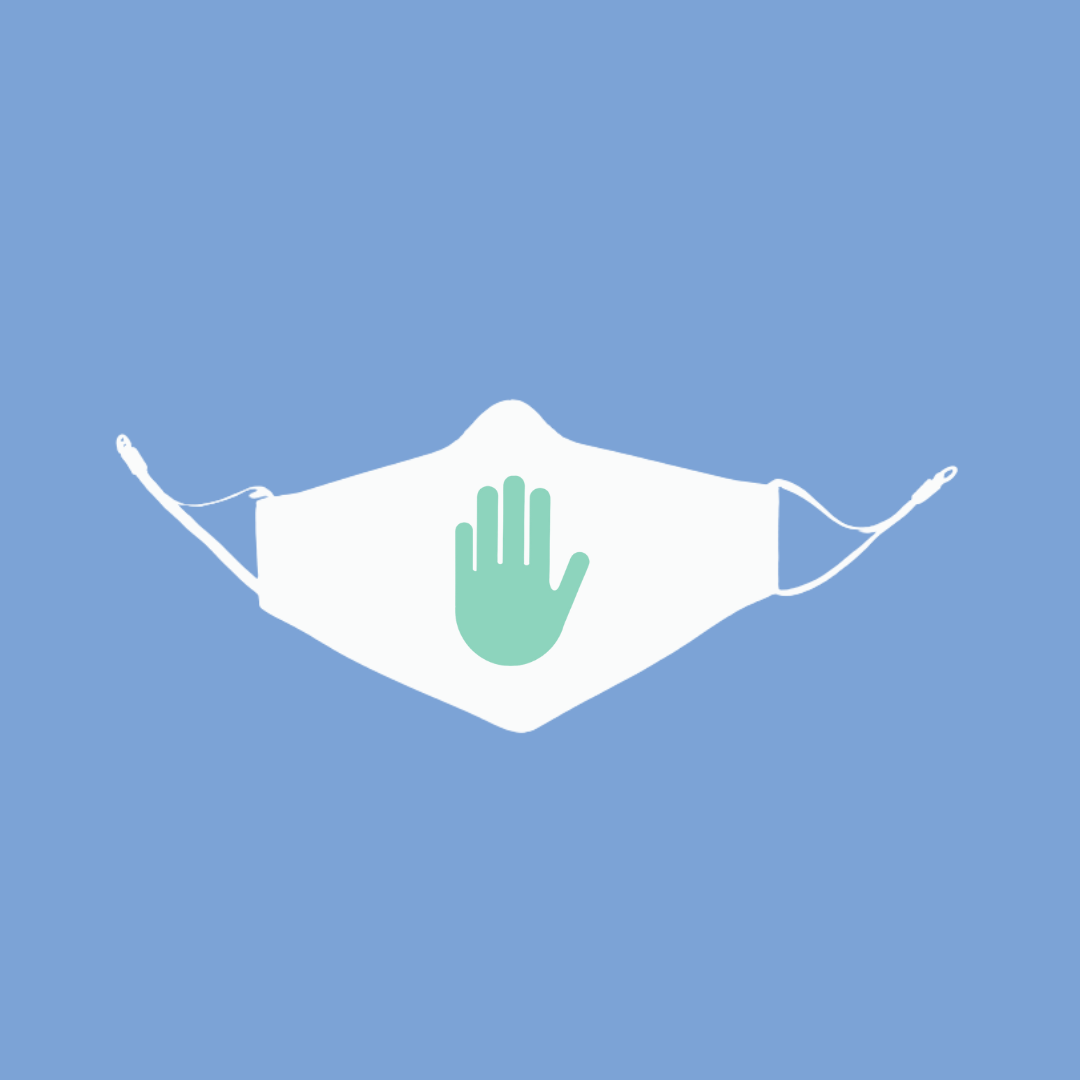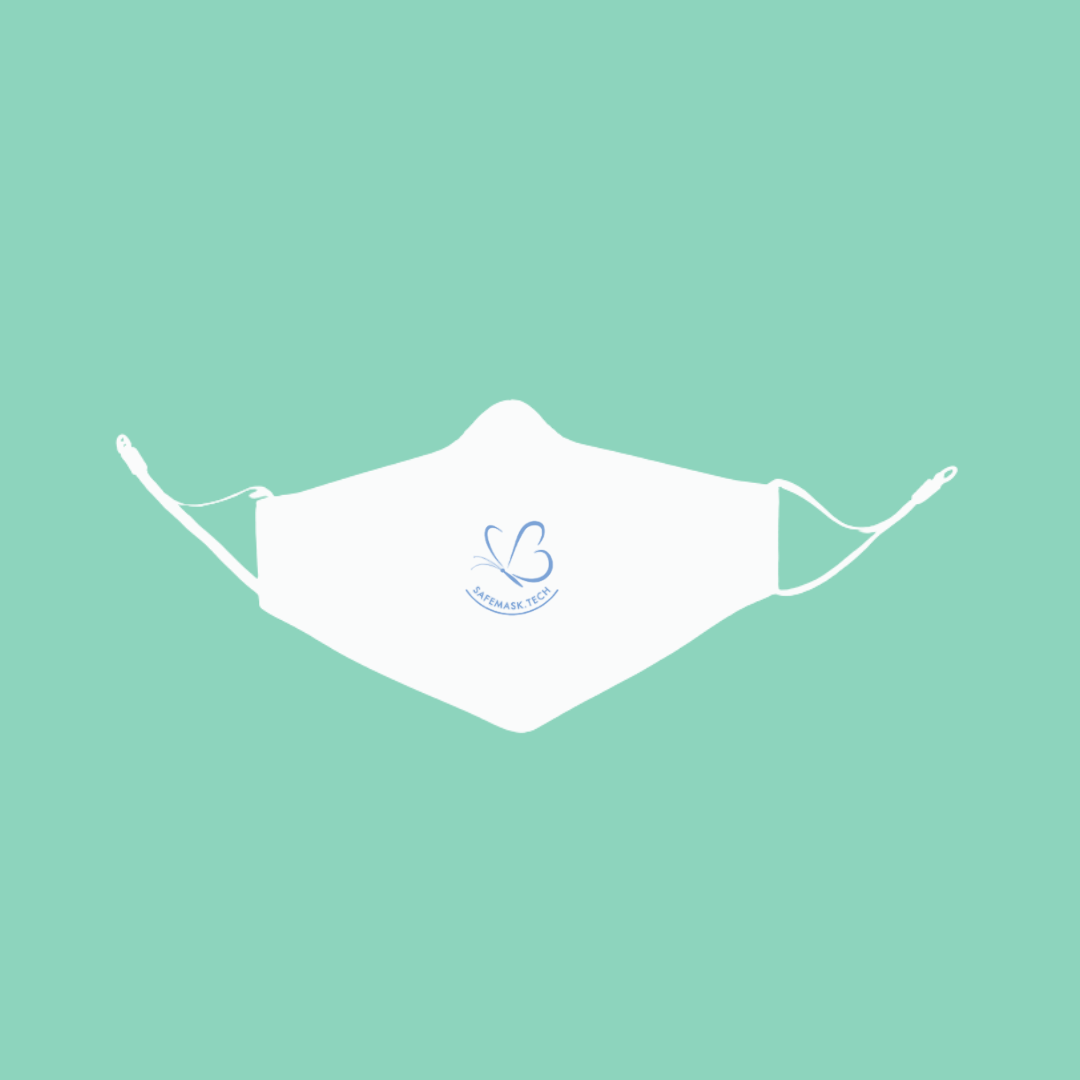FAQs
Questions re how to choose facemasks?
As we believe that Life is Precious, and we hope that you can agree with us, and therefore when selecting your facemasks, it is most important that you select facemasks which can protect you from the virus
- The facemasks must be able to filter out efficiently, at least 95% of viruses or particles
- At the same time, the facemasks must enable you to breathe easily, for it is pointless buying a facemask which does not help you to breathe easily, and as a result, you have to take off your facemask to catch a breather, and thereby exposing yourself, even momentarily, to higher risks of infection
As explained in the preceding, it is most important that you select a facemask which offers you certified protection and good breathability
- By certified protection, it is where relevant facemask fabric has been developed, with filtration capabilities, specially for use as facemasks, and where the said facemask fabric has been tested and certified by independent testing and certification agencies in accordance with S
- In addition, the said facemasks must offer good breathability in order that you can wear the facemasks for as long as you need to
There are other criteria which need to and can be considered:
- Comfort
- Face-fit
- Durability
- Utility
- Quality
- Design and colours
- Price
- Customisability
and we have elaborated on these criteria in our responses to further questions below
Indeed, many people also consider price or cost, given especially that the current pandemic has caused much hardship, but it is recommended that the costs of facemasks ought to be compared on apple-to-apple basis
- For instance, a disposable facemask of $ 0.50/facemask for 180 days is much more expensive than a reusable facemask of $30.00/facemask which can last for 180 days
Questions re certified protection of facemasks
Facemasks must have certified protection so that you can be assured that the promised level of protection is the correct and actual level of protection
- Strictly speaking, when we buy a product, we would like to be assured that the product will perform as expected
- Imagine buying an umbrella which leaks …
- Similarly, when you buy a facemask, you would like to be assured that the promised protection is as promised, no more, no less
- So, how can you be assured of this promised?
- Typically, facemask manufacturers produce facemask fabrics of certain performance capabilities
- Upon production, they would send the fabrics to independent testing and certification agencies so that the said fabrics can be tested and certified in accordance with relevant international or national facemasks Standards
- The said agencies will then issue certificates in accordance with the said standards
- The manufacturers should be able to share with you their certificates so that you can be assured of their facemask performance capabilities
Yes, reputable facemask manufacturers should be able to show you their certification, but as with many products, there are manufacturers who produce products which do not comply with Standards
- Sometimes when faced sudden surge of demand, products are produced without compliance with Standards
- New manufacturers can also emerge to meet the demand, again, some may not produce in accordance with relevant Standards
- Or there would be manufacturers or promoters who do not understand, nor bother; take for instance facemask manufacturers which state that their facemasks offer PM 2.5 filtration
- PM 2.5 filtration means that the facemask or facemask fabric can filter up to 2.5 microns of particles
- The Covid-19 Virus is between 0.06 to 0.14 microns in size
- Effectively an opening in a PM 2.5 facemask will allow at least between 250 to 1,350 viruses to pass through, per opening, and there would be thousands of opening per facemask
- So, how is it that a PM 2.5 filtration facemask will offer good protection?
- Hence, it is most important that we buy facemasks which offer certified protection
One simple way to check on this is to see I the certificate has the name and address of the said facemask manufacturer stated on the said certificate
- If the said certificate contains the name of another company, it Is likely the company which you are dealing with is just the promoter of the facemask (or it could be that the said certificate belongs to another manufacturer who has not authorised use of its certificate)
- As a buyer, you have the right to ask for such certificates and ask for clarification
- A genuine manufacturer should be receptive to answer your questions
As noted earlier, facemask fabrics are sent to independent testing and certification agencies to test as to whether the said fabrics meet relevant Standards
Each manufacturer will have to decide as to which Standard its facemasks would be tested against, though there are certain basic Standards which must be tested against
It is important not to be misled by reference to certain Standards or Test Methods which are not relevant in respect of protection
- For instance, Test Method AATCC 135 refers to “Test Method for Dimensional Changes of Fabrics after Home Laundering”
- Put simply, this Test Method measures as to changes to the fabric size after washing, eg shrinkage, and it is not important for, and has nothing to do with, for instance, filtration efficiency or protective capability of the facemask
- Therefore, best to be alert here
At the very least, facemasks ought to have certification on the filtration efficiency of its facemask fabric or facemasks, of at least 95% of say 0.3 micron particles
Ply means layer, and 3-ply typically refers to disposable facemasks made up of 3 layers of thin (nonwoven) fabrics, where the first layer is for the external protection of the wearer, the middle layer is for filtration, and the inner layer is to absorb oral and nasal moisture
Respirators like N95, KN95 or FFP2 are made up of 5 layers of fabrics, and they offer between 95% to 99%, or even 100% filtration
- But you cannot breathe through them
- And respirators cannot be worn for more than 4 hours simply because you cannot breathe through them
So, no, it does not mean that the more layers of fabrics you have, the better it is
- Yes, filtration will increase (but then again, this depends on the type of fabric), but you really cannot breathe through 3, 4, 5, or 6 layers of fabrics
- If you still prefer to use these kinds of 3, 4, 5, or 6 layers of fabric facemasks, ask the manufacturer for their filtration certificates
- Best that you get a facemask which offers certified protection and good breathability at the same time
As we have been advised, the virus spread via:
- Droplets (ie larger droplets from cough, sneezing, etc)
- Aerosol (ie smaller droplets which are airborne)
- Surface transmission
though the latest view is that the virus spreads mainly via aerosol
3-Ply disposable facemasks offer, amongst others, relevant 2 types of protection:
- Protection against droplets via the first layer of fabric (ie hydrophobic protection), and
- Protections against aerosol penetration via the second layer of fabric
Hence, for reusable fabric facemasks, there must be the following protection in facemasks:
- Protection against droplets via water impermeable fabric, and
- Protection against aerosol via particle filtration fabric
Quality disposable facemasks also offer assurance against ease of burning, in that the facemask fabrics are ensured to be not easily flammable (not easy to burn)
Hence, in addition to filtration protection, reusable fabric facemasks also ought to offer, at the least:
- Protection against droplets via water impermeable fabric, and
- Assurance that facemask fabrics are not flammable
Pour water on the frontside of the facemask:
- If you find that water passes through to the back of the facemask, then you can conclude that the facemask does not offer protection against droplets sufficiently
- If you find that water does not pass through the frontside of the facemask, then you can conclude that the facemask offers protection against droplets, or more specifically, it offers water impermeability
To be more assured, ask for relevant water impermeability certification
It would not be possible to visually verify if a facemask offer protection against aerosols
- The only way to ensure that the fabric has sufficient protection against aerosols is by checking the manufacturer’s certification for particle filtration efficiency
However, you can conduct the following simple tests, but which tests can help you decide quickly as to whether relevant facemasks can be dependable or not:
- Firstly, you can try the Window Test
- Hold up your facemask against light at the window, and if you can see light coming through, then you can conclude that the facemask will like be not effective
- Our hair ranges between 17 microns to 181 microns, ie average of 75 microns
- The Covid-19 Virus size is between 0.06 microns to 0.14 microns
- So this means that between 11,500 to 7,100,000 viruses can pass through a pinhole
- And there are thousands of pinholes within a facemask
- So, if you can see light coming through the fabric when you hold it up against the light at the window, this means tha viruses can easily pass through
- Therefore, it is recommended that such facemasks be not used
- Secondly, you can try the Stretch Test, ie if the fabric is stretchable
- If the fabric is rather stretchable, this would mean that when you wear and stretch the facemask, the pinhole or hair diameter size holes of the fabric will be further stretched, thereby increasing the risks of viruses passing through
- To be safe, it is best not to use such facemasks of stretchable fabrics
Verification that facemasks offer sufficient non-flammability protection can only be achieved through evaluation of the manufacturer’s certificate for non-flammability
Questions re breathability of facemasks
Because Life Is Precious?
Well, we would not want to wear a facemask which is so thick that we cannot breathe at all
- Worse, we have to take off the mask after awhile, ie because we need a breather, only to expose ourselves to further risks of infection
It is very easy, just feel the facemask, if the facemask is very thick, the chances are that it is not of good breathability
- But of course, the best way is to test it
- Or if you do not wish to buy to test, then checkout relevant testimonials, if any, found on the website of the facemask manufacturer
- Or ask friends, colleagues or family members who have worn or tested those facemasks
Yes, the thicker the facemask fabric, the likely is its higher protection
- But higher protection does not mean that you can breathe well wearing it
- You need to have both good protection and good breathability at the same time
Whilst at it, a facemask fabric which is pretty thin and which can breathe well does not mean it is good for you
A good test is to hold the facemask against the window. This is called the Windows Test. If you can see light passing through the facemask, we would say that this facemask does not offer good protection at all
- Or you can test the facemask by putting your mobile phone torchlight under the facemask, and see if significant amount of light can pass through
- Similarly, if light can pass through, this means that the facemask cannot offer good protection
The basis is this, that is, if light can pass through, it means that there are pinholes, and typically, pinholes are the size of our hair
- Our hair ranges between 17 microns to 181 microns, ie average of 75 microns
- The Covid-19 Virus size is between 0.06 microns to 0.14 microns
- So this means that between 11,500 to 7,100,000 viruses can pass through a pinhole
- And there are thousands of pinholes within a facemask
But of course, best that you request for the manufacturer’s facemask certification to be sure, to see if they can offer filtration of at least 95% of say 0.3 microns particles
A good test is to hold the facemask against the window. This is called the Windows Test. If you can see light passing through the facemask, we would say that this facemask does not offer good protection at all
Questions re Comfort
Facemask comfort typically refers to how well the facemask fits the face, how well the facemask holds against the face by virtue of the earloops or headloop, and also to how smooth and soft the facemask fabrics are to the face
Because facemasks concern hygiene, manufacturers will not allow you to test the facemasks, nor will they allow you to touch and feel the fabrics
- Hence, one way is to buy one to test it for yourself
- Alternatively, you can ask your friends, colleagues or family members who have tested relevant facemeask
- Or you can checkout relevant testimonials as stated on the website of the facemask manufacturer
- Of course, you can also take the bet by observing the level of attention to details of the manufacturer through its website, which hopefully will correlate to its facemask quality
Questions re Good and Full Face-fit
You would not want to have a facemask which is too small or too short such that it causes gaps, and where the gaps increases the risks of airborne viruses penetrating and entering the inside of the facemask
Therefore, it Is very important that you wear facemasks of good and full face-fit, going back to the ears and covering beyond the chin
We ought to see facemasks like our shirts or shoes, in that they ought to be fit well, mainly so that a good-fit facemask will offer another dimension of protection, ie there is minimisation of gaps
To be better assured of buying facemasks which will fit well, look out for the following in manufacturers:
- Given that there are many face sizes of people around the world, look for manufacturers which offer 5 or more facemask sizes, unless they state that they offer facemasks for, for instance adults only
- Manufacturers which offer 4 facemask sizes can still be considered, but it would be unlikely that you will be able to buy good-fit facemask sizes from manufacturers who offer 2 or 3 sizes, or worse, just 1 type of size
- Secondly, look for manufacturer which states a method of measurement to determine the facemask sizes
- Thirdly, look for facemasks which have elastic earloops which are adjustable
- Facemasks which do not provide for adjustment may cause buyers to find it difficult to adjust the facemasks to their face size
Questions re Durability
Certainly, to save money, and no point buying something which will not last
- And there are facemasks which are cheaper, but cannot last beyond a few weeks
- This is where either the elastic band wears out, or where the fabric tears after awhile
It is best that you consider buying fabric facemasks which can last between 90 to 180 days, or even beyond, so that you get your money’s worth
Watch out for the sewing quality of the facemask, and also for the quality of the earloop elastic
- Poor quality sewing will cause the facemask to break apart after awhile
- Poor quality earloop elastic will cause the earloop and facemask to be not usable, especially after the facemask is washed a few times
Watch out also for the fabric quality
- It is best that the fabric be not of the stretchable type, because after awhile the fabric will loosen up, for instance, just like what happens with t-shirt fabrics
Questions re Utility
Buy a facemask which comes with an adjuster at the earloops, so that you can adjust the earloops as they become less elastic
Buy a facemask which comes with a lanyard
Try a facemask with headloop
You can consider using a facemask with headloop
Wear a facemask with headloop
Questions re Quality
Watch out especially for the earloops, as sometimes cheaper facemasks come with poor quality earloops, such that the earloops become less elastic after a couple of washes
Watch out also for the fabric quality
- It is best that the fabric be not of the stretchable type, because after awhile the fabric will loosen up, for instance, just like what happens with t-shirt fabrics
Questions re Design and Colours
To be assured of protection of such type of facemasks, you need to ask the facemask manufacturer for its filtration certificate
From our experience, typically facemasks which has filter pockets, are made of stretchable fabrics, which in itself does not offer good protection, because when the fabrics are stretched, pinholes can be visible
- Pinholes are large holes through which viruses can pass through, and therefore such facemasks do not offer good protection
- Our hair ranges between 17 microns to 181 microns, ie average of 75 microns
- The Covid-19 Virus size is between 0.06 microns to 0.14 microns
- So this means that between 11,500 to 7,100,000 viruses can pass through a pinhole
- And there are thousands of pinholes within a facemask
Sometimes relevant disposable filter paper or filter fabric appear flimsy, and it is not certain as to whether such filters can offer sufficient protection, if at all
- Again, to be sure, ask for filtration certification of the disposable filter paper or filter fabric from the facemask manufacturer
Yes, certainly, please contact us via Live Chat, WhatsApp, FB Messenger, Email, which links are found at the bottom of this page
Yes, certainly, please contact us via Live Chat, WhatsApp, FB Messenger, Email, which links are found at the bottom of this page
Questions re Price
It is incorrect to compare this way, as we are not comparing apples-to-apples
- The correct way to compare is as below:
- Reusable facemasks which can be used for 180 days on the average cost $ 30.00/pc, whereas
- Disposable facemasks of $ 0.30/pc to % 0.50/pc, used over 180 days would cost between $ 54.00 to $ 90.00
- Clearly reusable facemasks are much cheaper
Questions re Customisability
We can help customise our Corporate Facemasks by tweaking the following:
- Your corporate logo
- Facemask fabric colour which matches for your corporate colour

